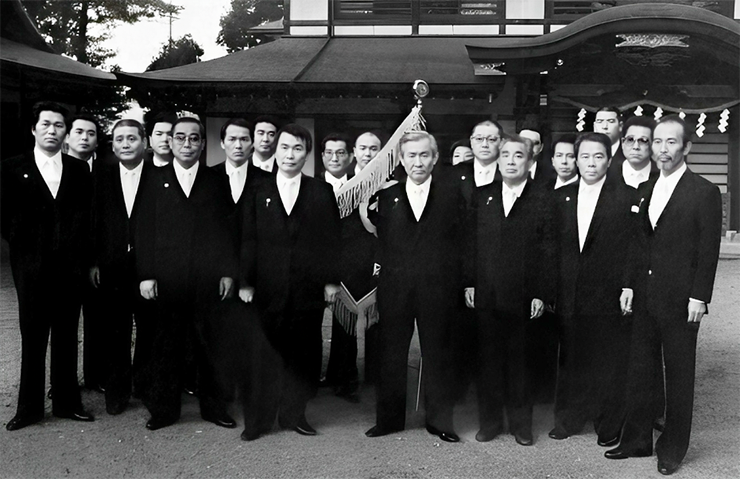
The fusion of tradition and modernity often leads to captivating and unique styles. One such intriguing trend gaining momentum in the fashion world is the influence of yakuza style. Rooted in Japanese organized crime, the yakuza’s distinctive fashion choices, characterized by silk garments and intricate tattoos, have inspired contemporary designers and fashion enthusiasts alike.
But before we start, let’s clear up who were yakuza? The word yakuza (ヤクザ) is believed to have derived from a worthless hand in a Japanese card game similar to baccarat or blackjack: the cards ya-ku-sa (“eight-nine-three”), when added up, give the worst possible total. In Japan, yakuza is also called as gokudō (極道, “the extreme path”). The Japanese police and media, by request of the police, call them bōryokudan (暴力団, “violent groups”), while the yakuza call themselves ninkyō dantai (任侠団体, “chivalrous organizations”).
Yakuza had a distinct style and fashion associated with its members. While styles could vary, there were some common elements:
Tattoos: many yakuza members had extensive tattoos, often covering large parts of their bodies. These tattoos, known as “irezumi”, are intricate and symbolic, representing the individual’s status, loyalty, and personal experiences. Designers now incorporate irezumi motifs into their collections, featuring dragon scales, cherry blossoms, and koi fish in bold and vibrant patterns. This fusion of traditional Japanese tattoo art with modern fabrics adds an edgy and rebellious element to clothing, allowing fashion enthusiasts to express their individuality and embrace the rich cultural history associated with yakuza tattoos.
Hairstyles: traditional yakuza members often sport short, slicked-back hairstyles. This style reflects a disciplined and serious demeanor. However, modern yakuza members might adopt more contemporary hairstyles.
Daily clothes: yakuza typically wear well-tailored suits, symbolizing professionalism and adherence to a strict code of conduct. Dark colors such as black and gray are commonly preferred. The suits are often accessorized with luxury items like expensive watches and gold jewelry.
Ceremonial clothes: for special occasions, such as rituals, important meetings, or for commemoration photos, yakuza wear kimono. The kimono, as the national costume, denotes belonging to the Japanese cultural milieu. And by its very rarity it also signifies exclusiveness, emphasized by the context of its use, for the kimono is worn in the most secretive and inner events, such as, for example, “sakazuki” (ceremonial process in which two or more individuals form a bond akin to that of family in an exchange of sake cups).
Grooming: Yakuza members place importance on cleanliness and grooming. Neat and well-kept appearances contribute to the image of discipline and respectability.
Distinctive Symbols: Some yakuza members display specific symbols associated with their clan or organization. These symbols can be found on clothing, accessories, or even as tattoos.
Yakuza’s influence extends beyond criminal activities, and certain aspects of their style have become ingrained in Japanese popular culture. The infusion of yakuza style into contemporary fashion represents a harmonious blend of tradition and modernity. Silk garments and tattoo-inspired designs not only showcase a rich cultural heritage but also provide a platform for self-expression and individuality. As fashion continues to evolve, the influence of yakuza style serves as a reminder that inspiration can be drawn from the most unexpected sources, creating a vibrant and diverse sartorial landscape.
The post Silk, Tattoos, and Tradition: Decoding Yakuza Style in Contemporary Fashion appeared first on The Fashiongton Post.
